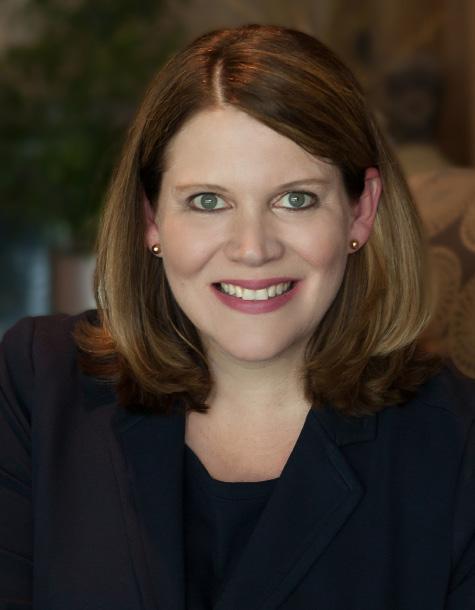
3 minute read
From the President
LAURA BAKER, Publisher WILLIAM T. RAMSEY, Editor-in-Chief CAROLINE E. SAPP, Managing Editor LAUREN POOLE, Managing Editor JILL PRESLEY, Layout/Design/Production
EDITORIAL COMMITTEE
RAMONA DESALVO TIM ISHII KELLY FREY SUMMER MELTON ROB MARTIN BRUCE PHILLIPS BART PICKETT BRANDON SMITH KRISTIN THOMAS JONATHAN WARDLE CRAIG WEBB ELEANOR WETZEL
NASHVILLE BAR JOURNAL (ISSN1548-7113) (USPS 021-962) is published bi-monthly by the Nashville Bar Association, 150 4th Ave N, Ste 1350, Nashville, TN 37219. Periodicals Postage Paid at Nashville TN.
POSTMASTER: Send address changes to Nashville Bar Journal, 150 4th Ave N, Ste 1350, Nashville, TN 37219-2419.
No part of this publication may be reprinted without written permission of the Nashville Bar Journal Editorial Committee. All articles, letters, and editorials contained in this publication represent the views of the authors and do not necessarily reflect the opinions of the Nashville Bar Association. For more information, visit NashvilleBar.org/NashvilleBarJournal.
The Nashville Bar Journal welcomes discourse. You may submit counterpoint editorials to Jill.Presley@ nashvillebar.org to be considered by the editorial committee for publication in a future print or online content.
NASHVILLE BAR ASSOCIATION 150 4th Ave N, Ste 1350 Nashville, TN 37219 615-242-9272 | NashvilleBar.org
The Nashville Bar Association, established in 1831, is a professional organization serving the legal community of Nashville, Tennessee. Our mission is to improve the practice of law through education, service, and fellowship The NBA—with 2,500+ members—is the largest metropolitan bar association in Tennessee.
FROM THE PRESIDENT Good Trouble | Laura Baker
If not us, then who? If not now, then when?
These words of Representative John Lewis are displayed above the entryway to the Civil Rights Room in the Nashville Public Library. When Representative Lewis died on July 17, America lost a civil rights icon and a life-long activist who marched and protested and suffered beatings in his relentless pursuit of equal justice for all. Representative Lewis was widely known as the ‘Conscience of Congress’ and his urgent questions of ‘who’ and ‘when’ appeal to our sense of right and wrong and compel us to action. While the pandemic continues to disrupt our lives, and while racism and discrimination continue to deny equal justice to people of color, we cannot leave the work of John Lewis and so many others to future generations. It is up to us to make change now.
On Juneteenth, I announced a new Board Committee on Race and Equity as the NBA’s first step in fulfilling our commitment to listen and learn, to educate and improve, and to accelerate action towards our common goal of rooting out racism and discrimination in the legal profession. Our members serve our community as lawyers, but also as leaders in law firms, government, community groups, schools, and neighborhoods. By addressing systemic and structural racism in the legal profession, we will by extension also contribute to the broader fight for equal justice for all. My objective in forming this committee is to give issues of race and equity board-level attention. We are proud of the work of the NBA Diversity Committee in its multiple programs and initiatives towards promoting diversity, equity, and inclusion. At the same time, we must recognize the responsibility of the elected leaders of the NBA to confront issues of race and equity in the legal profession and to determine the NBA’s role and responsibilities in addressing these issues. The committee is charged with identifying and implementing short-term action steps and with engaging in long range planning to set the vision and objectives for the NBA’s future work to ensure diversity, equity, and inclusion in the law. NBA board members Luther Wright and Lynne Ingram will serve as the Race and Equity Committee’s first chairs and I am thankful for their leadership in guiding the important work of this committee.
NBA members have another powerful tool in making change: the right to vote. This year we celebrate the 100th anniversary of the 19th amendment, which guaranteed the vote to women in America. We also celebrate the 150th anniversary of the 15th amendment, which granted voting rights to African American men. John Lewis’s life’s work was devoted to ensuring protections for Black voters at the polls. In his words: “I have said this before, and I will say it again. The vote is precious. It is almost sacred. It is the most powerful non-violent tool we have in a democracy.”
There are people who fight every day for the right to vote, and then there are people who choose not to vote. In this election year, I hope you will join me in honoring those who have fought for and those who continue to fight for the right to vote by exercising your precious and “almost sacred” right to vote.





